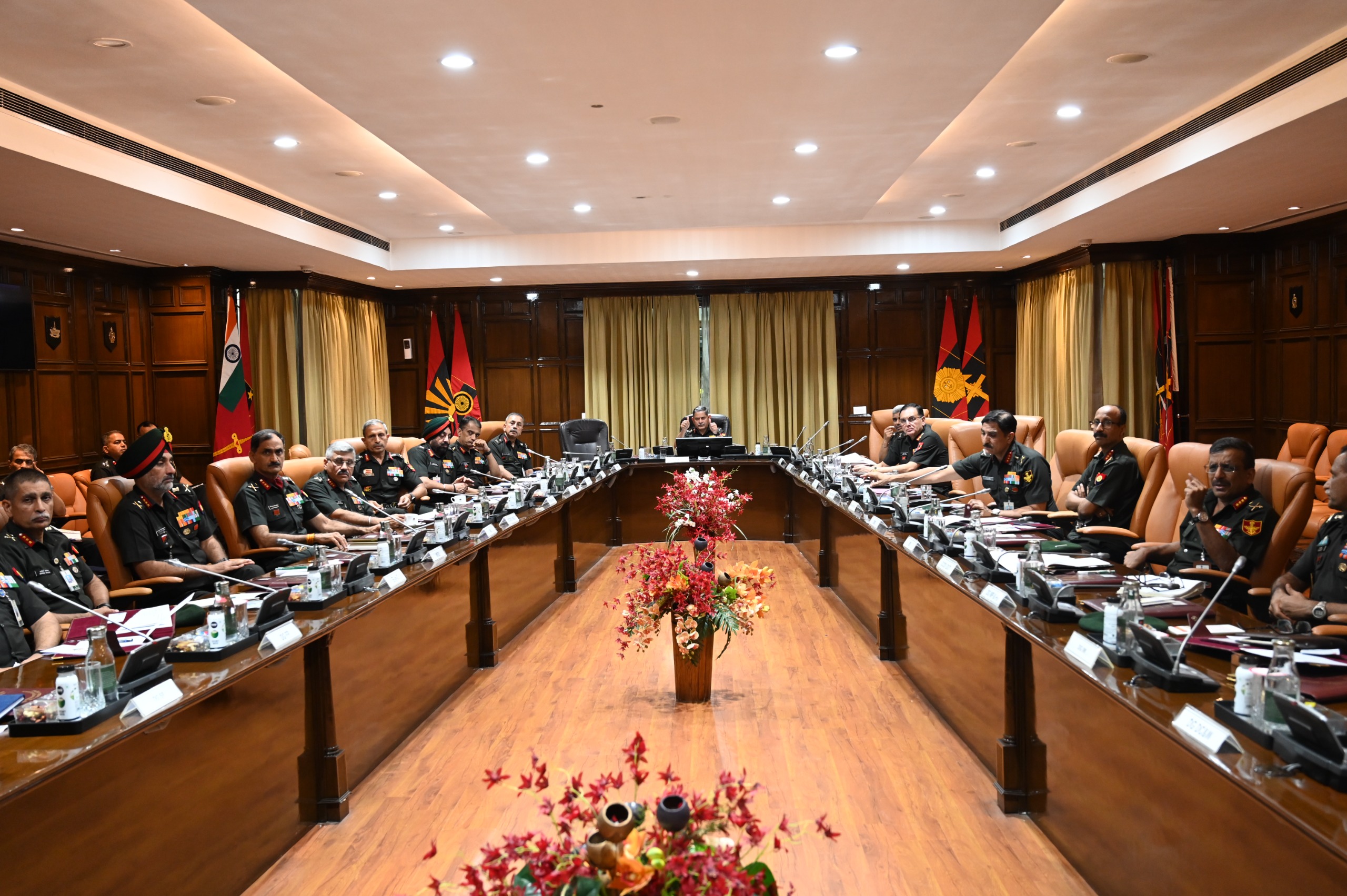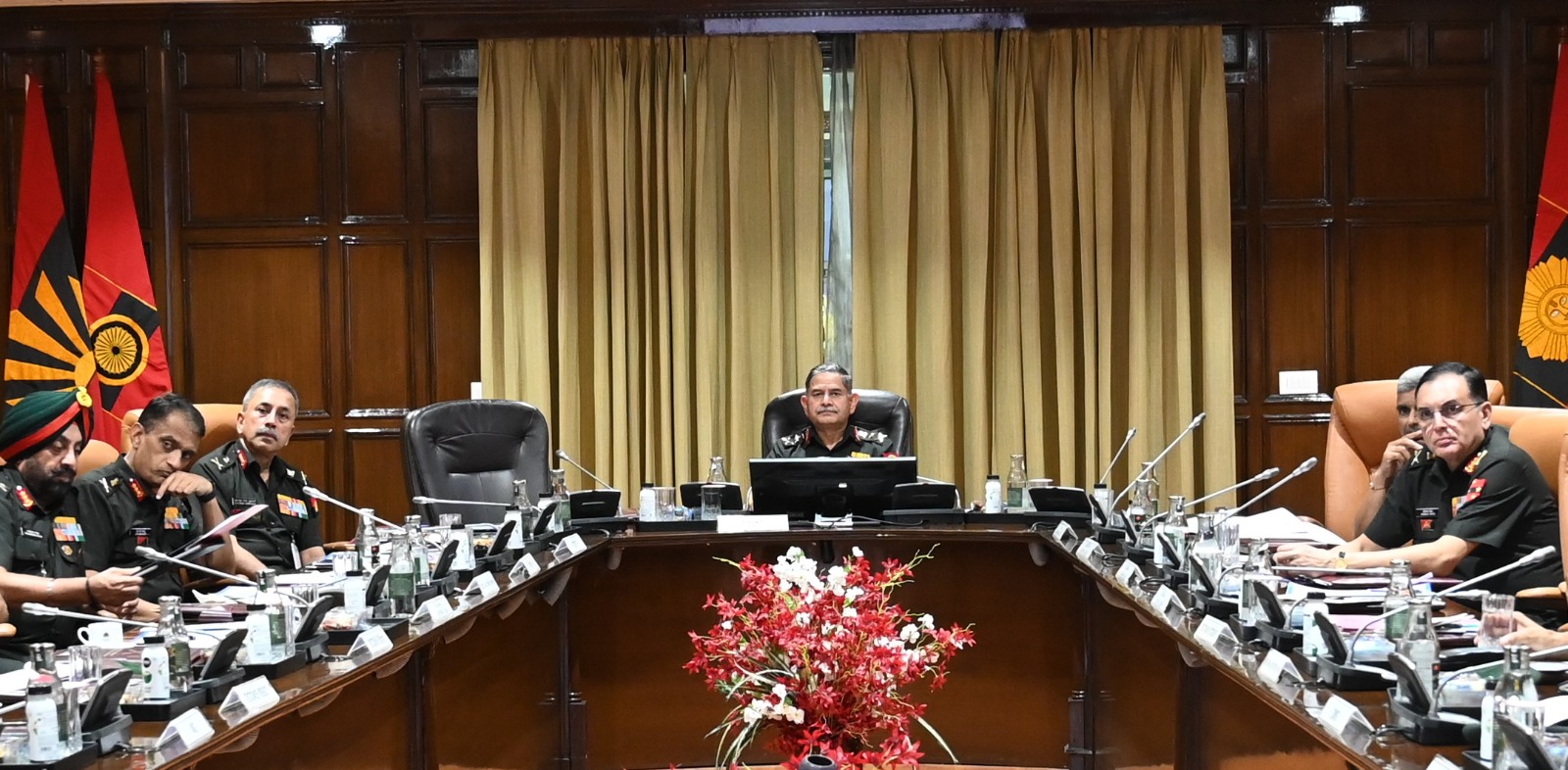SENIOR LEADERSHIP OF INDIAN ARMY DELIBERATES ON ROAD MAP FOR VIKSIT BHARAT@2047
SENIOR LEADERSHIP OF INDIAN ARMY DELIBERATES ON ROAD MAP FOR VIKSIT BHARAT@2047
The Indian Army’s senior leadership gathered in New Delhi on 19th August 2024 for a crucial discussion chaired by General Upendra Dwivedi, the Chief of the Army Staff (COAS). This marks the first high-level meeting under General Dwivedi’s leadership since he assumed the role of COAS on 30th June 2024. The meeting, which will continue through 20th August, is being attended by the General Officer Commanding-in-Chiefs (GOC-in-Cs) of the Indian Army’s seven commands.
Today’s focus of the discussion was on charting the future course of the Indian Army during the Amrit Kaal, aligning with the Government of India’s Vision to make India a developed country, a significant global player and one of the most desirable countries to live in by 2047. The forum provided an opportunity for the Indian Army’s top brass to brainstorm on strategic issues and set the direction for the Indian Army’s transformation over the next two decades.
The discussions were centred around ongoing transformational initiatives by the Indian Army and its contribution towards achieving the objective of Viksit Bharat@2047. The senior leadership engaged in interactive discussions to define the Army’s role in the national vision and articulated the Indian Army’s Vision@2047 as:
“To transform into a modern, agile, adaptive, technology-enabled, and self-reliant future-ready force, capable of deterring and winning wars in a multi-domain environment across the spectrum of operations, to protect our national interests in synergy with the other Services.”
Key Goals for Decade of Transformation
The Indian Army spearheaded into the decade of Transformation by declaring year 2023 as ‘Year of Transformation’ and 2024 as ‘Year of Technology Absorption’ to align its rank and file towards the Transformative initiatives being undertaken.
The senior leadership outlined several broad goals to be pursued in next decade, including: Theaterisation, reorganisation of Army and Command Headquarters, realignment of Command, Corps and Area HQ boundaries. Other discussion agendas included World Class Infrastructure Development, enhancing Multi-Domain and Cross-Domain Operational Capabilities to include land, air, cyber and space.
Conduct of Data-Centric Operations by leveraging technology were deliberated to enhance the existing capabilities. In addition, road map for capability development for upgradation of Mechanised Forces, Artillery, Combat aviation, Air Defence and Infantry was discussed alongwith options for enhancement of logistics, ammunition infrastructure, requirement of new structures to support multi domain operations and framework for expediting automation and networking of systems, processes and functions were discussed.
The COAS exhorted all stakeholders to promote Atmanirbharta, strive to achieve self-reliance in Indigenisation of equipment, platforms, and weapons, support Indian Defence Industries in not only developing world-class equipment but also facilitate in becoming a leading defence exporter.
Actions to enhance Jointness and Integration in armed forces were also discussed for strengthening of joint service structures and organisations besides the need to establish common military stations and units for logistics, communication, and other essential services. Human Resource Development initiatives aimed at improving the quality and effectiveness of personnel across the ranks were also deliberated upon.
Key Discussions and Initiatives
Additional Initiatives
The discussions concluded with the ongoing initiatives of Indian Army aligned to the National Vision to include:
The discussions reaffirmed the Indian Army’s commitment to evolving into a future-ready force that is not only capable of protecting national interests but also contributing significantly to the vision of Viksit Bharat@2047.

